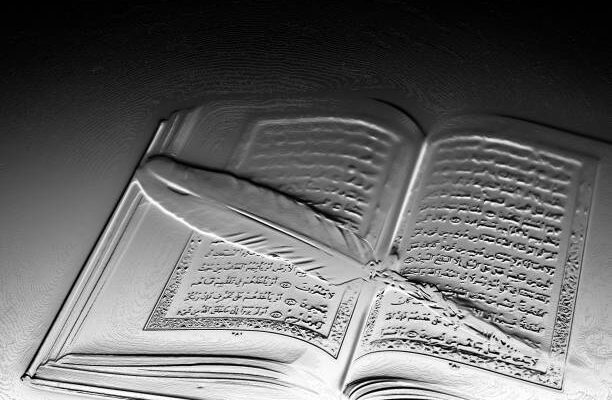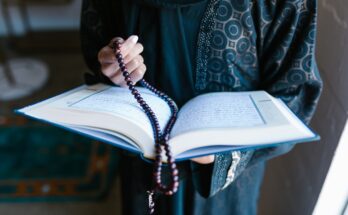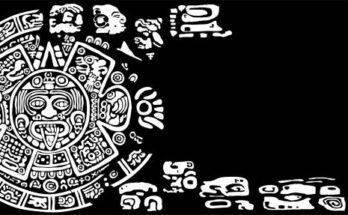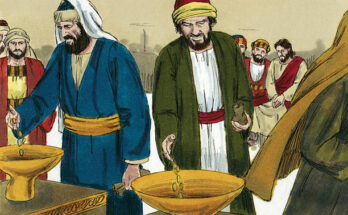Religion and literature have long been intertwined, with each influencing the other in profound ways. The intersection of these two realms has yielded some of the most enduring and powerful works of art in human history. Throughout the ages, poets and writers have drawn upon their religious beliefs, questioned the nature of divinity, and explored the complex relationships between faith, doubt, and human existence. In this article, we will delve into the role of religion in poetry and literature, exploring the rich tapestry of themes, motifs, and perspectives that religion has offered to writers and poets.
-
Religion as a Source of Inspiration
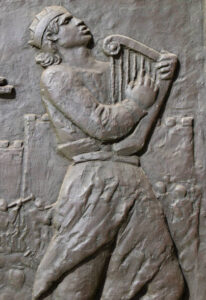 (Photo from iStock)
(Photo from iStock)
Religion has consistently served as a wellspring of inspiration for writers and poets. The sacred texts of various religions contain profound stories, teachings, and wisdom that have motivated countless authors to explore themes of spirituality, morality, and the human condition. These texts, such as the Bible, the Quran, the Bhagavad Gita, and the Tao Te Ching, have provided a rich source of material for literary works.
One of the most famous examples of religious inspiration in literature is John Milton’s epic poem, “Paradise Lost.” Milton drew upon his deep knowledge of Christianity to craft a narrative that explores the Fall of Man and the eternal struggle between good and evil. Through the characters of Adam, Eve, and Satan, Milton delves into complex theological and philosophical themes. Specifically, demonstrating how religious motifs can give rise to profound works of art.
-
Religious Allegory and Symbolism
Religion has also served as a powerful source of allegory and symbolism in literature. Writers often use religious symbols and stories to convey deeper meanings and explore universal truths. Although, these symbols and allegorical elements can be found in works from various cultural and religious traditions.
For instance, in Nathaniel Hawthorne’s “The Scarlet Letter,” the scarlet letter ‘A’ that Hester Prynne is forced to wear serves as a symbol of her sin, reminiscent of the mark of Cain in the Bible. Altogether, the novel grapples with themes of sin, guilt, and redemption, using religious symbolism to drive its narrative.
-
Theological Exploration and Doubt
Many poets and writers have used their works to explore the complexities of religious belief and doubt. They delve into questions about the nature of God, the existence of evil, and the meaning of life. Through their writings, these authors confront the challenges and ambiguities of faith.
In his poem “Dover Beach,” Matthew Arnold reflects on the erosion of religious faith in the face of scientific and philosophical advancements. Especially, the poem expresses a sense of melancholy and loss, suggesting that the “Sea of Faith” is receding, leaving humanity in a state of spiritual desolation.
-
Exploration of Morality and Ethics
 (Photo from iStock)
(Photo from iStock)
Religion has played a central role in shaping moral and ethical values throughout history, and many works of literature use religious themes to explore questions of right and wrong, good and evil. Moreover, authors have examined the ethical dilemmas faced by their characters, often in the context of religious teachings and beliefs.
In “Les Misérables” by Victor Hugo, the character Jean Valjean undergoes a profound moral transformation influenced by the kindness of a bishop. The novel explores themes of redemption, forgiveness, and the ethical imperative to help those in need, reflecting the Christian principles of love and mercy.
-
Religious Diversity and Pluralism
Literature provides a platform for exploring the rich tapestry of religious diversity and pluralism. As societies become more multicultural and interconnected. Authors have increasingly drawn from a variety of religious traditions to depict the complexity of human beliefs and experiences.
Salman Rushdie’s “The Satanic Verses” is a notable example of a work that explores religious diversity and the clash of cultures. The novel incorporates elements of Islamic history and mythology. And it delves into the experience of immigrants in a Western world. Reflecting the challenges of assimilation and cultural identity.
-
Social and Political Commentary
Religion has often been intertwined with social and political issues, and literature has served as a means of commentary on these matters. Writers have used their works to critique religious institutions. Furthermore, challenge societal norms, and advocate for social justice.
Mark Twain’s “The Adventures of Huckleberry Finn” is a satirical commentary on the religious. And moral hypocrisy of the pre-Civil War American South. Twain’s portrayal of the character “The King” and “The Duke” highlights. Further, the way people can exploit religion for their own gain, critiquing the ethical implications of such behaviour.
-
Personal Spirituality and Transcendence
 (Photo from iStock)
(Photo from iStock)
For many writers and poets, religion provides a framework for exploring their own personal spirituality and experiences of transcendence. They use their work to communicate a sense of connection with the divine. Or the numinous, often drawing on their own religious or spiritual experiences.
The poetry of Jalaluddin Rumi, a 13th-century Sufi mystic, is a profound example of personal spirituality in literature. Rumi’s poetry reflects his deep connection with God. Evidently, his experience of divine love, serving as a source of inspiration for readers seeking their own spiritual path.
-
Cultural and Historical Significance
Religion has played a crucial role in shaping the cultural and historical landscape of societies around the world. Literature. In turn, has captured the essence of religious traditions and their impact on the human experience. Making it a valuable source for understanding the cultural and historical significance of religion.
Homer’s epic poems, “The Iliad” and “The Odyssey,” delve into the beliefs and practices of the ancient Greeks. Reflecting the polytheistic worldview of the time.
Conclusion
In conclusion, the role of religion in poetry and literature is a multifaceted and enduring one. Authors have drawn from religious traditions. And beliefs to explore a wide range of themes, from inspiration and allegory to theological exploration, morality, diversity, and personal spirituality. Eventually, religion has served as a source of inspiration. A means of exploring the human condition, and a platform for social and political commentary. It has been both a source of comfort and a subject of critique. Hence, literature and poetry is influenced greatly by religion.
Reference:
Encyclopedia.com
Want to know about creation of the world, click on the link below:
How Can Religion Be Created? Exploring the Origins and Evolution

